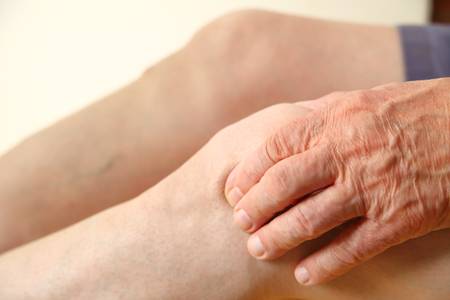How to Prevent Rheumatoid Arthritis
Introduction:
Rheumatoid Arthritis (RA) is a chronic inflammatory disorder that affects joints, causing pain, swelling, stiffness, and loss of function. While there is no definite way to prevent RA, certain lifestyle modifications and preventive measures can significantly reduce the risk of developing this condition or alleviate its symptoms. In this comprehensive guide, we will explore various strategies and practices that can help in preventing Rheumatoid Arthritis.
Understanding Rheumatoid Arthritis:
Before delving into prevention strategies, it's crucial to understand what Rheumatoid Arthritis is and how it affects the body. RA is an autoimmune disorder where the immune system mistakenly attacks healthy tissues, primarily targeting the synovium, the lining of the membranes that surround the joints. This results in inflammation, which leads to joint damage and other systemic complications.
Genetic predisposition, environmental factors, and certain lifestyle choices play a role in the development of RA. While some risk factors like family history and age cannot be controlled, there are several preventive measures individuals can adopt to reduce the likelihood of developing this condition.
1. Maintain a Healthy Weight:
Obesity is a known risk factor for Rheumatoid Arthritis. Excess body weight puts additional stress on the joints, particularly those in the knees, hips, and feet, increasing the risk of joint damage and inflammation. Maintaining a healthy weight through a balanced diet and regular exercise can help reduce the strain on the joints and lower the risk of developing RA.
2. Adopt a Balanced Diet:
A nutritious diet rich in fruits, vegetables, whole grains, and lean proteins provides essential nutrients that support overall health and immune function. Certain foods, such as those high in antioxidants and omega-3 fatty acids, have anti-inflammatory properties and may help reduce inflammation associated with RA. Avoiding processed foods, sugary snacks, and excessive alcohol consumption can also contribute to better joint health.
3. Regular Exercise:
Physical activity is vital for maintaining joint flexibility, muscle strength, and overall mobility. Low-impact exercises like walking, swimming, yoga, and tai chi are excellent options for people at risk of RA or those with existing joint pain. These activities help improve joint function without putting undue stress on the joints. Additionally, regular exercise promotes weight management and reduces inflammation, further lowering the risk of RA.
4. Protect Joint Health:
Taking proactive measures to protect joint health can help prevent or delay the onset of Rheumatoid Arthritis. Avoiding repetitive stress on the joints, using proper ergonomics at work and home, and practicing joint-friendly movements can reduce the risk of joint injury and inflammation. Wearing supportive footwear, using assistive devices when necessary, and maintaining good posture are simple yet effective ways to protect joint health.
5. Manage Stress:
Stress is known to exacerbate inflammation and weaken the immune system, potentially contributing to the development of autoimmune disorders like RA. Finding healthy ways to manage stress, such as relaxation techniques, mindfulness meditation, deep breathing exercises, and engaging in enjoyable activities, can help mitigate its effects on the body. Prioritizing self-care, getting adequate sleep, and seeking support from friends, family, or a therapist are essential components of stress management.
6. Avoid Smoking:
Cigarette smoking has been identified as a significant risk factor for Rheumatoid Arthritis. Smoking not only increases the risk of developing RA but also worsens its severity and reduces the effectiveness of treatment. Quitting smoking is one of the most impactful steps individuals can take to prevent RA and improve overall health. Support groups, counseling, nicotine replacement therapies, and other smoking cessation aids can assist in quitting successfully.
7. Stay Informed and Seek Medical Advice:
Being aware of the early signs and symptoms of Rheumatoid Arthritis and seeking prompt medical attention can help in early diagnosis and treatment. Regular check-ups with a healthcare professional, especially for individuals with a family history of RA or other autoimmune conditions, can aid in monitoring joint health and identifying any warning signs. Consulting a rheumatologist for personalized risk assessment and preventive measures is advisable for those at high risk of developing RA.
Conclusion:
While Rheumatoid Arthritis cannot be entirely prevented, adopting a healthy lifestyle and implementing preventive strategies can significantly reduce the risk of developing this chronic condition. By maintaining a healthy weight, following a balanced diet, staying physically active, protecting joint health, managing stress, avoiding smoking, and seeking medical advice when needed, individuals can take proactive steps towards preventing Rheumatoid Arthritis and preserving joint function and overall well-being. Remember, small changes in lifestyle can lead to significant improvements in joint health and quality of life.




No comments yet
Be the first to share your thoughts!